#steve rhoades
Text
The way Married with children fandom is infested with, I hate to say the word but, boomers who hate their wife and life really kills the discourse. There is like ten people here anyway, seven of them are boomers.
2 notes
·
View notes
Text


Blizzard of Ozz US 1981 (September 11th, 1981 in Sunrise, Florida) — Tommy Aldridge, Steve Clark, Rick Allen, Randy Rhoads, Joe Elliott, Ozzy Osbourne, Rick Savage, Rudy Sarzo and Pete Willis.
#def leppard#80s#80s rock#rock#80s music#music#defleppard#80s fashion#80s aesthetic#joe elliott#steve clark#rick savage#rick allen#pete willis#ozzy#ozzy osbourne#randy rhoads#Spotify
46 notes
·
View notes
Text



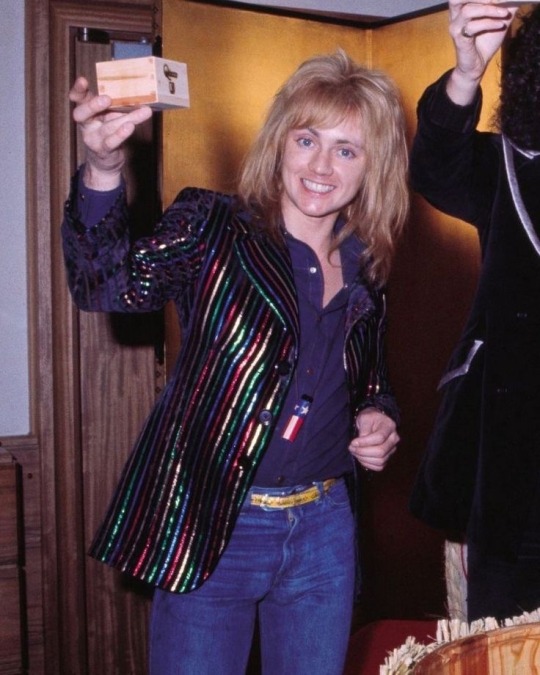
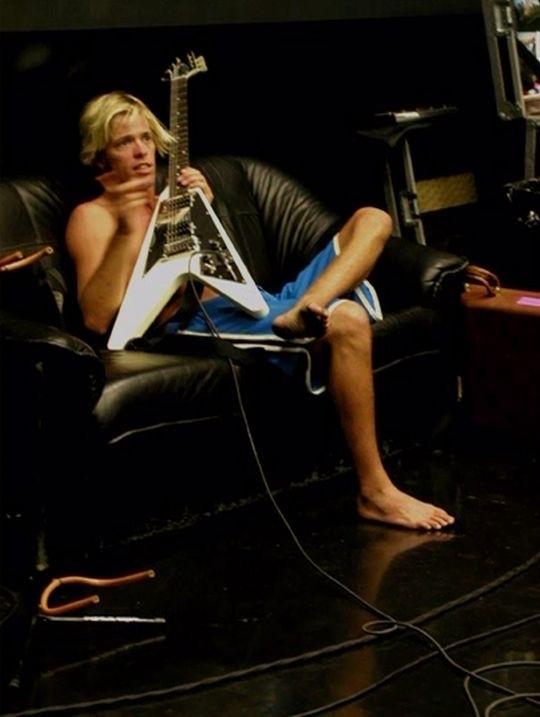



me when silly golden retriever boys 😍😍
31 notes
·
View notes
Text
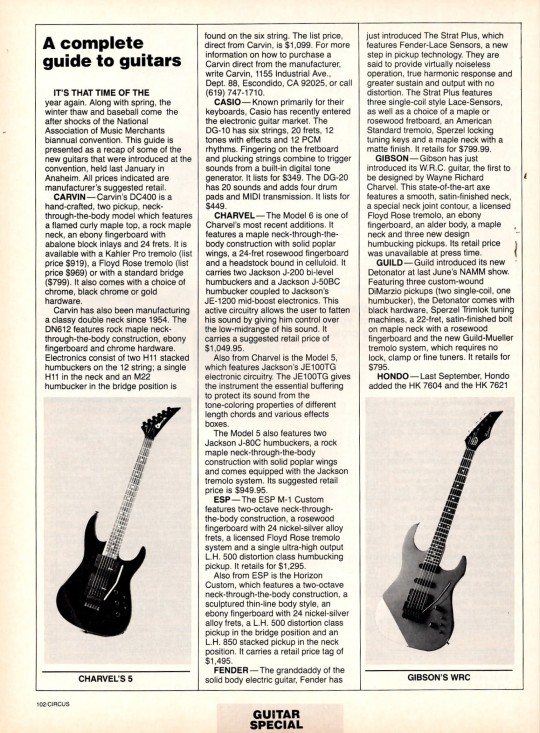

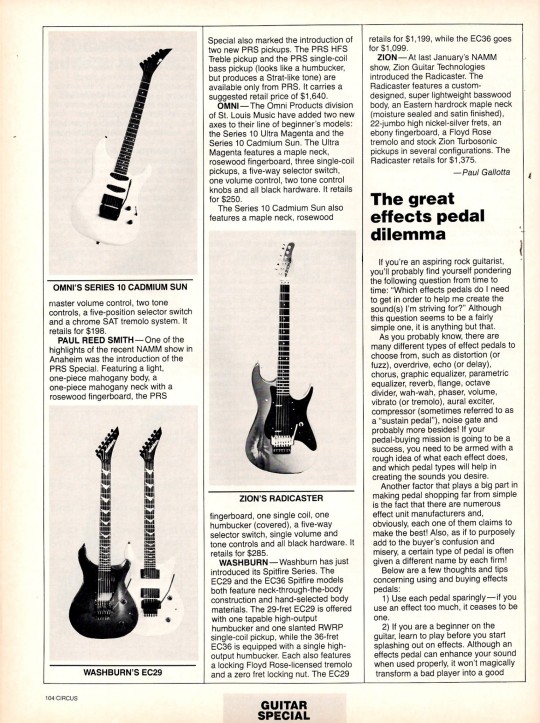


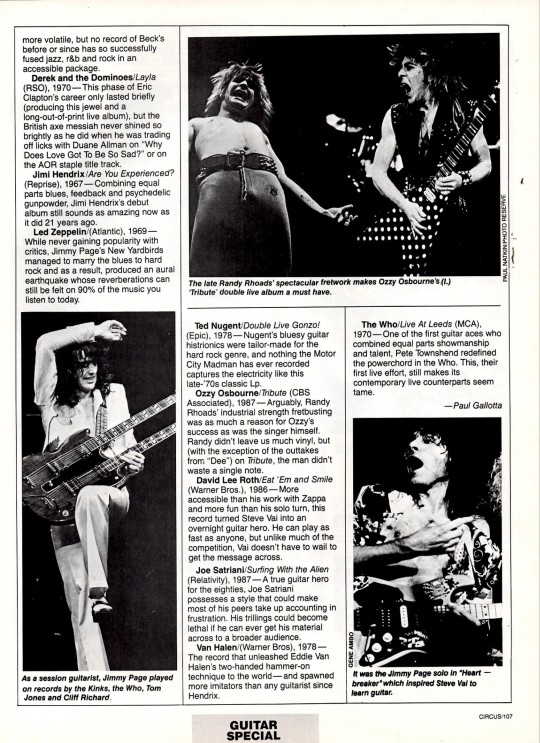
#circus#circus magazine#guitar guide#charvel#gibson#omni#washburn#zion#boss#ibanez#jimmy page#randy rhoads#ozzy#ozzy osbourne#steve vai
31 notes
·
View notes
Text

#ozzy osbourne#randy rhoads#def leppard#1980s#classic rock#joe elliott#steve clark#rick savage#pete willis#rick allen#rudy sarzo#tommy aldridge#group shot#when legends collide#1981#hard rock#heavy metal
15 notes
·
View notes
Text
Throughout the course of Billions, characters have conspired to take down their enemies with comically elaborate schemes. It’s only natural, then, that the series finale, “Admirals Fund,” hinges on one last con. With self-made billionaire Mike Prince (Corey Stoll) shaping up to be the next POTUS, longtime adversaries Chuck Rhoades (Paul Giamatti) and Bobby Axelrod (Damian Lewis) work together to take away the one thing that legitimizes Prince’s candidacy: his wealth.
As Prince goes to meet with the current (albeit unnamed) president at Camp David—a tacit acknowledgement that he’s the front-runner in the upcoming election—Chuck and Axe set about orchestrating his downfall. At the Southern District of New York’s offices, Chuck tells his staff that they’re now investigating six of the United States’ largest national gas companies for potential collusion with China, Russia, and Iran. Meanwhile, Philip Charyn (Toney Goins), who has the final say on all trades at Michael Prince Capital and has secretly soured on his boss, goes about putting all of the company’s funds into the natural gas sector. Once the SDNY’s investigation is leaked to the press as Chuck intended, the stocks crater and MPC’s risk-management algorithm sells all of the natural gas positions once they become worthless. (Since Prince doesn’t have access to his phone at Camp David, he’s oblivious to all of this going down.) By the time Chuck holds a press conference announcing that the investigation amounted to nothing but hearsay—thereby allowing the natural gas stocks to rebound—Prince’s entire portfolio has been wiped out. As for Axe, he ensures that his former Axe Capital employees are spared from the carnage by siphoning their money into a secret internal fund. In one fell swoop, Prince loses his throne.
With that, Billions arrives at its own version of a happy ending: Chuck reclaims his dream job at SDNY, Axe revives his hedge fund, Wendy Rhoades (Maggie Siff) embraces a new challenge as the CEO of a telehealth company, and Taylor Mason (Asia Kate Dillon) leaves the world of finance for philanthropy. (While Prince’s company is destroyed and his presidential aspirations are extinguished, his consolation prize is the $100 million he tucked away at Black-owned banks to secure Killer Mike’s endorsement.) Still, even as Billions ends, it’s hard to imagine these characters ever winding down—in the spirit of the show’s innumerable pop culture references, the action is the juice.
Of course, the world of Billions isn’t going anywhere: as Showtime announced earlier this year, as many as four spinoffs are in development. (The working titles for two of these projects: Millions and Trillions; I’m not kidding.) With the Writers Guild of America strike only just ending—and the Screen Actors Guild still negotiating with studios—there haven’t been any meaningful updates on these spinoffs. But for the time being, series cocreators Brian Koppelman and David Levien are more than happy to break down all things Billions. Below, we discuss the challenge of ending a show with such a deep ensemble, what goes into executing a long con, and the celebrity cameos that could have been.
Good to see you guys again. Brian, I haven’t seen you since you kicked my ass in tennis, but I’ve been trying to work on my game since.
Brian Koppelman: Yeah, how’s that been going, man?
Actually, it’s been going well. I won a tournament in Brooklyn last month, but it felt very fluky. It didn’t have any heavy hitters in the draw.
Koppelman: All deep respect to you, but I’m not optimistic about your chances against me.
[Laughs] Fair enough. First of all, congrats on the finale. When you guys started Billions, did you already have an idea of how long the series would go on for, or were you taking it season by season and assessing after that?
Brian Koppelman: I think the only way one can think about this is: Do you think at the beginning of something like this, it sets up to be the kind of story you could tell over a long period of time? Do the characters have enough of a charge in them, and does the world suggest the possibility for enough conflict and story and resonance to the society that you’re living in? For us, the answers to those questions were yes, and so it was like, well, let’s try. Each season, you empty the clip. Each season, you try to tell the absolute best story you can—you don’t save ideas. That’s what David Chase said, and that’s what Matt Weiner said, and that was our approach. But we did it weirdly, we had the first three seasons and we knew, if we can do it—
David Levien: The broad strokes were mapped out.
Koppelman: So then as you’re doing that, you start to think, OK, two more seasons out, and two more seasons out. In a way, yes, we certainly never felt like more than seven seasons was the right answer. At a certain point, Billions watchers were not casual fans. They were people who watched the show more than once and really invested in the canted world that these characters live in. Getting that kind of response, knowing that if we had a character have an odd enthusiasm or interesting reverence, that there were a lot of people out there to catch what we were throwing, that really does act as fuel.
With a show like this, what’s the biggest challenge in landing the plane? My mind goes straight to just how loaded and talented the ensemble is, and trying to give every character a worthy sendoff.
Levien: Yeah, that was a big part of it. We wanted to have a good resolution for so many different characters. Over the course of the final season, we wanted to revisit tons of guest stars, and then for the core group, we had a good amount of people that needed a moment. Also, a lot of different pairings of people that needed to have resolution. It was a question of balancing that valedictory stuff with wrapping up the plot in an exciting way, so that you weren’t sitting there, having stopped moving, basically for the goodbyes.
That’s what we spent the most time on: balancing in the final episode how to unfurl the big plot moves, and filtering in all of the more emotional stuff.
The public perception of billionaires has evolved quite a bit since the start of the series—there’s more scrutiny, and even animosity. Did that affect not just your approach to the series, but how you introduced a new foil like Mike Prince?
Levien: Yeah, I mean that totally informed it. When we started, we were very focused on these hedge fund billionaires who really didn’t like to be in the spotlight, and they didn’t really advertise that they were building anything for the good of humanity. They all generally did some philanthropy, but even that wasn’t super public. But then after a couple of years as we were into it, we started to realize that there was this new kind of a billionaire who maybe came from venture capital, or was an inventor, or in private equity or something, and they were bringing these ideas to benefit mankind and help everybody.
Koppleman: But putting air quotes around [benefiting mankind], we didn’t find that credible.
Levien: Maybe they tried, but the idea that by virtue of all the success, they had all the answers in every field, and that politics was a natural extension of that. So yeah, Mike Prince got introduced as this wonderful guy who had all the answers and didn’t even show you that he was competitive. Because he was so warm and cuddly, like a cuddly monster as he calls himself. But then as you spend more time with him, you start to see the darker hues that everybody gets alarmed by.
Koppelman: But also, Miles, your question is interesting because it comes from a very particular point of view—of geography, age, profession. In fact, it’s not true, right? It’s true in the microcosm, it’s completely not true in the macro. I mean, look at Shark Tank and Mark Cuban in the world, and yes, one may decry Elon [Musk], but just go online today and say something bad about him.
It’s interesting that you asked the question. I would ask you to actually probe that because you stated it like it’s a fact, but it’s a fact for a group of people who feel a certain way. Perhaps we’re in that group of people with you, who have a jaundiced eye toward that kind of power. But one of the things we learned in making the show was that in our minds, Axe was never the hero of the show. From Episode 6 of the first season on, we slowly reveal that Axe is essentially the kind of utilitarian who would let a guy die for a little more money and security. And we were shocked that the audience loved him even more.
Levien: They thought he was a badass for that.
Koppelman: We were revealing that, yes, this guy’s charming and powerful and charismatic and has great verbal skills and is a winner. But you—us—should regard him with huge amounts of suspicion, and a huge amount of awareness for the destructive power that’s on the flip side of all the gifts. At the same time, that’s when the country elects Trump—at the end of the first season, that’s when that happened. We were watching the culture in a wrestling match about this question. Perhaps for you it’s settled, but I don’t think it’s settled for most of America.
I guess I would counter that with the guild strikes. Obviously, it’s more specific to our industry, but the last time the writers were on strike, there wasn’t as much public support for it. When you lay out the facts for people, fewer will side with the studios and these wealthy executives. We don’t have to get into all that, and maybe it’s not a true consensus, but I feel like—
Koppelman: That’s the media. I mean, fans of the show couldn’t help getting some kind of wish fulfillment thing going with Axe.
It’s like Tony Soprano or Walter White. People might not get the right message from it. They might just idolize these people.
Koppelman: I’m really interested in what we’re going to discover about these kinds of people. I understand why we all would decry them. I’m really interested in why they’re effective so we can learn from it as a society. It’s fascinating to explore it, for me, with curiosity.
Diving into the finale—hopefully it goes without saying that this is a compliment—but seeing all the characters and the way they orchestrated Prince’s downfall, it almost felt like something out of an Ocean’s movie. These long cons—and seeing how all the pieces fall into place—have been one of the show’s biggest calling cards. As the creative architects behind these moments, what goes into making a long con and executing it well?
Koppelman: Imperfect information.
Levien: To the audience.
Koppelman: Right. The thing that makes someone good at poker is understanding how to look at imperfect information, and if you’re telling a story, it’s how to distribute information with holes in it that might lead somebody a certain way. You know, it’s this old [Quentin] Tarantino thing, where he talked about the challenge of audiences being so sophisticated. They’ve ridden the roller coaster so many times that they start leaning left before the roller coaster banks left. Quentin’s point is that, as a creator, you have to find a way to get them leaning left and then whip right.
One thing that struck me this season was the emphasis on self-improvement from the characters. For instance, Chuck chose to help Ira with the cellphone sex tape scandal instead of throwing him under the bus. Characters didn’t necessarily change who they were as much as becoming better versions of themselves. What inspired that shift?
Levien: There has to be some kind of evolution. For some characters, they can change more. Taylor can take a stride and finally deploy money in a way that’s going to be philanthropic. For someone like Chuck, he’s not going to change completely elementally, but he can still take steps—small steps. That reflected a reality to us and yet it stayed true to his character.
It’s an interesting contrast to Prince. The other characters are willing to acknowledge their flaws and work on them, whereas Prince can only choose to believe that he’s a righteous person.
Levien: That’s something that we were working with, which is that the main characters ultimately looked at who they were and knew who they were. He was the one guy who was in denial, and that was his fatal flaw.
The characters on Billions have been driven by constant schemes to acquire more power or money—or both—and it’s hard to imagine that stopping just because the show is ending. Have you put any thought into where you see characters like Axe, Chuck, Taylor, and Wendy in five or 10 years?
Koppelman: It’s real intentional what Axe’s last lines are. We don’t really talk in terms of statements we’re trying to make. But he’s someone with all those options in life, all those tools, all that money, all that ability to buy freedom, to have freedom. Yet the only place that he feels really alive is talking to this group of mostly men and saying, “Let’s make some fucking money.” There is something about that that we wanted to leave you with, and have you think about. We hope you’ll consider why that made you feel the way it made you feel.
We watched [the finale] in a theater recently and [the audience] was cheering [for Axe], and it’s like, well, why? What are you cheering for, exactly? We’re really interested in that question.
One of the joys of Billions is seeing all the celebrity cameos, and this season you got the likes of Kareem Abdul-Jabbar, Triple H, and Killer Mike. Are there any celebrities at the top of the wishlist who didn’t appear on the show?
Koppelman: Tiger Woods was the only clean turndown. With Tiger, there was nothing we could do. [Woods’s longtime agent Mark Steinberg] just wrote back, “No.” We know from someone that Tiger watches the show and he likes the show. But the answer was no. There is one heartbreak, and we haven’t said this to anyone, but we were really close to getting the great Steve Harvey on our show.
Really?
Levien: He was extremely difficult to get to. Even considering all the people that we got, he was the toughest.
Koppelman: We had a really special thing we’d written for Steve Harvey and we could never quite make it. Sadly, there was a scheduling snafu and he was on a Zoom that we didn’t know about, waiting for us. And you do not make a man like Steve Harvey wait. It’s crushing to us—we hope that whatever we do next, we can find a way to get Mr. Harvey to show up just one day. One day with Mr. Harvey and my entire life would be better.
Showtime already told me that you don’t have any updates on the Billions spinoffs. Instead, I’ve got a pitch for you guys: I’m thinking Maestro Scooter at the New York Philharmonic going full Lydia Tar.
Levien: When Scooter gets the baton in his hand, he starts to become a driven maniac.
Koppelman: I think you’ll understand, Miles, that under normal circumstances, of course we would welcome you into the writers room. But we can’t poach from Bill Simmons, and that’s the only reason. Otherwise, we would tell you to create that for us under our umbrella. But we have to close that umbrella because we’re under Bill’s umbrella. (Editor’s note: Koppelman and Levien hosted a Billions podcast with The Ringer during Season 5.)
Of course, the separation of church and state. I understand. I just wanted to throw it out there, and obviously you’ll be hearing from my lawyers if Maestro Scooter does happen.
Koppelman: I feel if you write this without acknowledging the tennis loss, you’re not including your bias in the piece.
Levien: It’s going to be one of those profile-y things where it’s like, “Koppelman likes to bully about his tennis.”
Wow, you had to bring up the loss again.
Koppelman: I think of it as a win.
#billions#7x12#brian koppelman#david levien#mike prince#bobby axelrod#taylor mason#chuck rhoade#scooter dunbar#if i was there (the finale screening) i would have stopped it (booed axe)#oh to know what the steve harvey cameo would have been...
1 note
·
View note
Text
Submissions for the hottest 80s male musicians
Go wild everyone! We have 256, potentially 516 slots to fill!
Submissions 88/256
List of submitted people
Phil Collins
Michael Monroe
Duff McKagan
Vince Neil
Kee Marcello
Michael Sweet
Roger Taylor
Joe Elliott
Sting
Michael Hutchence
Bono
Larry Mullen Jr.
Tom Petty
Axl Rose
Razzle Dingley
Eddie Van Halen
Dave Mustaine
Nikki Sixx
Morten Harket
Tommy Lee
John Deacon
Zakk Wylde
Steven Adler
Slash
Izzy Stradlin
Jon Bon Jovi
Richie Sambora
Kelly Nickels
Bret Michaels
Warren Demartini
Sebastian Bach
Rachel Bolan
Jerry Harrison
Eric Brittingham
Steven Tyler
George Harrison
Brian May
Tom Keifer
Mick Mars
Paul Stanley
Joey Tempest
Jani Lane
Prince
David Bowie
Ozzy Osbourne
Sami Yaffa
Angus Young
Rikki Rockett
David Lee Roth
Bobby Dall
Robin Zander
Eric Bazilian
Jimmy Page
Kirk Hammett
James Hetfield
Jason Newsted
Morrissey
Nick Beggs
Steve Clark
Chris Lowe
Rick Savage
Robert Smith
Robbin Crosby
David Sylvian
Daryl Hall
John Oates
Rod Stewart
Billy Squier
Nasty Suicide
Geddy Lee
David Coverdale
George Lynch
Randy Rhoads
Alice Cooper
David Bryan
Steven Sweet
Freddie Mercury
Terry Hall
Stone Gossard
Nuno Bettencourt
Bruce Kulick
Leif Garett
Adam Yauch
Mike Tramp
Blixa Bargeld
Dave Vanian
Nick Cave
Gary Numan
@tournament-announcer
#the hottest 80s musician tournament#the hottest 80s musician tourney#submisions#poll tournament#tumblr tournament#80s music#80s musicians
36 notes
·
View notes
Text

I'm not sure if I agree with all of this! Where is Randy Rhoades, Steve Vai and Alan Collins?

21 notes
·
View notes
Note
Do you know if DC owns the rights to other Fawcett characters or just Captain Marvel and friends? I ask because Grant Morrison did use Bullet Man.
Alright so the tldr is they own the rights to at least some amount of the other Fawcett characters, but not necessarily all of them.
The abridged timeline of relevant events is:
1940: Captain Marvel Debuts in Whiz Comics #2.¹
1941-53: DC Comics sues Fawcett over similarities between Captain Marvel and Superman. This court battle goes on for a long time until eventually being settled in 1953.²
Late 1953: Due to both the lawsuit and a general decline in comics sales, Fawcett sells off many of its characters to Charlton Publications, and ceases producing comics for several years.²
1967: Marvel introduces their own Captain Marvel character in Marvel Super-Heroes #12, thus claiming the title/trademark. This was possible because despite DC winning the earlier court case, nobody was using Fawcett's Captain Marvel at the time.³ However, despite the trademark title belonging to Marvel, this did not mean that the previous Captain Marvel character could no longer be called Captain Marvel if used again—just that the title could not be used for his book.
1973: DC acquires the rights to Fawcett's Captain Marvel, and begins to publish stories with him & his family under the 'Shazam!' title to comply with Marvel's trademark on the 'Captain Marvel' title.⁴
1983: DC buys the rights to all of Charlton's superhero characters, and not long after in 1985 Charlton closes down.³
So it's like... DC specifically acquired the rights to the Captain Marvel family & related characters, plus characters that Fawcett had previously sold to Charlton.
From minimal cross-referencing between some of the well-established Fawcett characters and one of the DC Encyclopedias, DC seems to have utilized a decent chunk of them (I found mention/reference to Bulletman like you mentioned, Bulletgirl, Ibis the Invincible, Spy Smasher, Mister Scarlet and Pinky, and Minute-Man)⁵ but they're definitely not using every Fawcett character. It's possible that DC does/did own the rights to more Fawcett characters, but just chose not to use them.
Otherwise though, I believe that any other Fawcett characters that weren't sold to Charlton (and thus were then acquired by DC) would just be in public domain at this point due to Fawcett being defunct.
—
¹ A Complete History of American Comic Books (2008) by Shirrel Rhoades. Available free on the Internet Archive.
² The Comic Book in America: An Illustrated History (1989) by Mike Benton. Available free on the Internet Archive.
³ Comics, Between the Panels (1998) by Steve Duin. Available free on the Internet Archive.
⁴ DC Comics: A Celebration of the World's Favorite Superheroes (2003) by Les Daniels. Available free on the Internet Archive.
⁵ The DC Comics Encyclopedia: The Definitive Guide to the Characters of the DC Universe, Updated and Expanded (2008). Available free on the Internet Archive.
29 notes
·
View notes
Text
John Frusciante’s guitar teacher once told him he wasn’t a good guitarist – so he learned to play like Steve Vai: “No-one was going to say that to me again”




The Red Hot Chili Peppers guitar hero recalls being criticized because he couldn’t play the blues scale fast enough: “It was about the worst feeling I could imagine” John Frusciante is widely hailed as one of the finest players of his generation, but his path to guitar greatness was far from straightforward.
The Red Hot Chili Peppers stalwart has been candid about his desire to impress early on in his career – best encapsulated in recently unearthed footage of him shredding like a hair-metal guitar hero at the age of 17 – before settling into a more comfortable, band-positive role for RHCP’s 1991 masterpiece, Blood Sugar Sex Magik.
Now, in a new interview for bandmate Flea’s This Little Light podcast, Frusciante has opened up about why he once prioritized melting faces rather than hearts. And it all stems from a negative comment from a former guitar teacher. At the age of 16, Frusciante had reached a crossroads. He was trying to combine two schools of thought in his playing: the textural guitar style of players like Adrian Belew and Andy Summers, and the flasher, speedier techniques pioneered by Eddie Van Halen and Randy Rhoads. Ultimately, he couldn’t decide what kind of guitar player he wanted to be.
In the search for his identity, he took lessons from a guitar teacher his mom met in a health food store. We say ‘lessons’, but it ended up being a singular encounter, after their first meeting ended in disappointment.
Frusciante began the lesson by showing the tutor a series of recordings he’d made at home on his Fostex X-15 four-track, inspired by Adrian Belew and Robert Fripp. “I was playing in the way that I should have been,” Frusciante recalls. “I was on the right path.” But that was about to change.
“This guy, he said, ‘Let me see you play a blue scale as fast as you can,’” Frusciante tells Flea. “And I played a blue scale as fast as I could, and he's like, ‘That's not fast. You're not a good guitarist.’
“He said, ‘You know that noise you're making on your recording is OK, but if you can't play a fast blue scale, you can’t go around telling people you're a good guitarist.”
The effect on Frusciante was devastating. “I never went to this guy again,” he says. “The feeling of being told that I wasn't a good guitar player was about the worst feeling I could imagine, and I was just gonna make sure that no-one was going to say that to me again.”

Magazine Guitar World Article By Michael Astley-Brown
8 notes
·
View notes
Text
Hate on Your Dial
Episode Recap #59: Hate on Your Dial
Original Airdate: November 18, 1989
Starring:
Louise Robey as Micki Foster
Steve Monarque as Johnny Ventura (as Steven Monarque)
Chris Wiggins as Jack Marshak
Guest cast:
Michael Rhoades as Ray Pierce
Vlasta Vrana as Sheriff
Robert A. Silverman as Archie Pierce (as Robert Silverman)
Melanie Miller as Margaret Pierce
Martin Doyle as Steve Pierce
Henry Czerny as Joe Nelson
Richard Mills as Elliot
Marc Gomes as Henry Emmett
Gene Mack as Ben Wilten
Jackie Richardson as Frances
Jan Taylor Hendricks as Waitress / Edna (as Jan Waterhouse)
Jamie Near as Young Archie
Written by Nancy Ann Miller
Directed by Allan Eastman
~~~~~~~~~~~~~
It is night time and we are at a modest home. Mr. Sandman on the radio. Two men in a garage cleaning an old car. They are brothers, Ray and Archie. Ray appears to be older and have special needs. His brother teases him. Their old mother comes into the garage with coffee. She doesn't like them reminiscing and leaves. Archie reads the date (May 17, 1954) on the photo, and Ray says it was "Black Monday" when "white folks got in trouble" and their daddy had "no choice."
Just then a little boy named Elliot shows up, admiring the car. Archie is happy to see him, but racist Ray reacts badly, knocking the fundraising candy out of the boy's hands. He pulls a screwdriver on Elliot, then shoves him, causing his engine parts to scatter. Ray gets even madder and pulls a shotgun off the wall, to frighten Elliot, who runs off. Ray says he'll get him another time.
Cut to credits.
Curious Goods, and a woman has brought a box of old items to the store for an appraisal. Johnny doesn't know what to offer, but they settle on $25 for the box. She leaves as Archie enters. He is browsing for a gift for his brother. Johnny takes a car radio out of the box he just bought and Archie identifies it as from a '54 Chevy. He says him and Ray have their daddy's '54 Chevy and Ray is always working on it. He wants to buy the radio, but he doesn't think he can afford it. Johnny gives him a good deal on it.
Next we are back in the garage, and Ray is finishing installing the radio his brother gifted him, saying it will now be just like when their daddy had it. But Archie says their father never drove it much, he went away cause he killed a man. Ray says the man was a "colored sharecropper" and thinks a black lawyer who got some mystery witness was the reason their dad got executed. Archie tells Ray he doesn't like how racist he is, especially to his friend Elliot. Ray says Archie may be slow, but he doesn't have to be stupid. He pulls out a photo album of their father in full KKK gear, and crosses they had burned. Ray obviously idolizes this time in history and his father's role in it.
At the store, Johnny is cleaning when Micki comes in. She says Jack's flight has been delayed a couple of hours. Johnny tells her about the car radio he bought and then quickly sold. Micki, already anticipating the answer, asks if he checked the manifest first. As she checks she finds a '54 Chevy radio listed. Johnny can't believe it and Micki seems to cut him some slack, but then Jack arrives home. From the looks on their faces, he knows it's bad news. Johnny says what he did, and Jack is frustrated at him. But Johnny remembers the car wash logo on Archie's shirt. Johnny and Micki head out, but Johnny stops to apologize again to Jack, who is clearly ticked off.
Next, we see Elliot playing alone at a basketball court. Ray pulls up in the old Chevy, clearly drinking as well. He gets out with his bottle, taunting Elliot, who doesn't trust him. Ray pulls a gun and shoots the hoop, then at Elliot's feet. Ray continues his racist rant, scaring Elliot as he waves his gun, shooting. Elliot is panicked and falls as Ray shoots again, this time hitting the kid. Ray touches him, gets blood on his hand and at the sound of police sirens, takes off.
Driving away, he is nervous and goes to turn on the car radio, getting Elliot's blood on the dials. This activates the curse, and the radio glows, then it envelops the car in a blinding light. Suddenly, Ray and the Chevy are in black and white, having traveled back in time. The radio says it is night in Mississippi as Ray cruises the streets, surprised. He stops the car and checks a newspaper, happy to realize where and when he is.
He goes in to a diner. He asks about his parents, and as the waitress gives directions, the place falls silent as a black man enters. He just wants to buy a loaf of bread, but the racist waitress refuses, telling him to go. He makes the mistake of grabbing her arm, and a man stands up, calling him "boy". He confronts the man, continuing the racist bull, even slapping the man. Fed up, the black man picks up the other and slams him in to a table, but the other man present gang up on him. Ray, who is loving all of this, hits the man himself until the sheriff arrives and pulls him off. He tells the black man to go, and merely chastises the group, Ray included. Another man introduces himself to Ray and buy him a shake.
Jack is still researching the radio when Micki and Johnny come back. They found where Archie works, but he won't be back until Monday. They also learned his name and that he has a brother, which further irritates Jack. Johnny tells him to rip his head off, but Jack is still snippy. Micki is shocked, Johnny says he look for it himself, but Jack calls out. He says he isn't angry with Johnny, just their situation, and that they done the same thing he did. Johnny says it all just keeps on happening.
Back to the past and Ray and his new friend are walking. Ray loves how "pure" the place feels and warns the other man things will change, going into yet another racist rant. He takes Ray to a meeting of men at a house. These men are already mad about the Supreme Court decision and think "their" colored people aren't unhappy and know their place. Ray realizes the man is his father when his wife comes in and recognizes his mother, pregnant with himself. Archie is there too, a young boy. Ray is introduced to his father and told what happened in the diner. He's invited along on their mission that night.
In the present, Johnny and Micki arrive and see Archie with his mother. Johnny says he wants to buy back the radio, but Archie says it's already in the car, and their mom says he's out driving and sometimes isn't back for days. They leave their card with Archie and leave, but decide to wait outside for Ray to return.
In the past, the men are in full KKK robes and burning a cross and an effigy of a judge to protest the end of segregation. They head off to teach the black man a lesson. Ray realizes what is about to happen is what got his father executed and tries to warn the men. But they say they'll kill the lawyer, too. Ray says they have to make sure they kill the woman who was a witness, too. The men agree, too amped up to understand what Ray's saying.
Later, they are dragging the black man, Ben Wilten, to a barn, his hands tied up and hooked up so they can beat him and lash him with a whip, just for touching the waitress. His hands get loose and he is able to hit the mask off, revealing the face of one man, and he is beaten more for that. He collapses and is whipped again.
Jack arrives at Micki and Johnny's stakeout with some food. He says he found some clippings Lewis had from 1954, and is thinking time travel.
Back in '54, the men are all hyped up from their attack, Ray included. He thinks maybe he changed things in his father's favor. They all drive off. As Ray drives, he notices Elliot's blood still on the radio. He wipes it off and him and the car are transported back to the present. Micki and the guys see his happen. Ray is pissed, pulling into his garage. Jack thinks Ray just came from the past.
Inside, Ray tells Archie to be quiet and asks his mother where his father is, hoping he changed things. But she says Mississippi hung him. Jack eavesdrops while Micki and Johnny attempt to slip into the garage. Ray says there was no witness back then, but he can't understand why their daddy didn't survive. Ray looks in the old album to see what the lawyer from back then looked like, so he can try again to change the past. Archie tries to talk to his brother, but Ray heads outside.
Micki sees Ray coming and her and Johnny hide. Archie keeps trying to get his brother's attention, but Ray ignores him and heads into the garage, saying he needs to kill another of his little black friends, shoving Archie, who realizes his brother killed Elliot. He grabs a hammer, but Ray takes it. Johnny and Micki try to get in as Ray beats his brother with the hammer. Johnny and Jack try to stop Ray as Micki goes to Archie. Ray jumps in the Chevy and wipes his brother's blood on the radio. It begins to glow and is transported back to Mississippi in 1954, this time with Ray, Johnny and Jack. Ray speeds off, leaving them in the road.
Ray goes to his parent's house, trying to warn his father to get out of town. His mother and Archie are their, and she listens as Ray tells them about the judge and what's going to happen. As Ray continues to try and get through to his father, Archie starts repeating over and over "Daddy killed a Negro." Ray tells his father this all going to ruin him unless they get the clan together to kill the lawyer. The man agrees and Ray goes to find the lawyer. Archie continues ranting and his father hits him hard, his mother too late to help.
Jack and Johnny are shocked to be in 1954, but Jack thinks Ray wants to change his father's fate. They see a commotion at the courthouse, townsfolk angry about the lawyer here to get justice for the murder of the sharecropper, Ben Wilton. The sheriff arrives to break things up. The lawyer, Henry Emmet, and he wants the sheriff to arrest the clan. But the sheriff wants him to have some witness or there is no case, but then goes on to threaten this supposed witness. Things break up, Johnny is shocked by this, but Jack says the present isn't much better.
Jack goes to speak to the lawyer, but the man and his friends are understandably wary. Jack tries to warn them about the men in town, and that his life is in jeopardy. But Emmet thinks Jack's warnings are really veiled threats. Jack is speechless.
In the present, Micki is telling the cops as much as she is able about Ray's disappearance after killing Archie. She tries to comfort the mother, who says she knew something like this would happen.
In the past, we see the mother comforting a hurt Archie. Ray arrives looking for his father, but she says he's at work. He is happy to have found the lawyer, but she isn't happy. She doesn't seem to carry the racism like her husband, and Ray. He asks what's up with Archie and she says his daddy hits him, and one day it will be too much.
Jack finds Johnny, who says he'll need a screwdriver to get the radio out. Jack says no, it is their only way home. They need to stop Ray before heading back. Johnny has the album from the car, and Jack recognizes some of the men from town. He takes off.
Later, after having shown the sheriff the album and identifying the man who killed Ben, Jack is surprised the sheriff doesn't head right off to arrest him. Jack then sees the clan dragging the lawyer into a car and goes to help, but is tossed into the car, too. The clan speed off.
In a field, with another cross on fire, the men in robes arrive and drag Jack and Emmet out. The grand dragon tells the others they also have a spy in their midst, who has been lying to them about helping. Johnny slips out of the trunk of Ray's Chevy. The spy is identified as Ray, who the man thinks is their to turn them in to the FBI. Ray is tied up as he protests.
Johnny hotwires the Chevy, turns it on and drives toward the group, causing them to scatter. He jumps out and shoots off the shotgun, and Jack tells Emmet they need to get in the car. Johnny again shoots the gun, stopping one of the men so they can drive off. The clan decides to deal with things here first, and tie up Ray and his friend from the diner, thinking they are traitors. They light the men on fire as Ray begs his daddy for help. As Ray burns, his father realizes the witness must be his wife.
After dropping Emmet off, Johnny and Jack drive the Chevy to where they arrived in the past. Johnny wipes the blood off the radio. The car glows and they go back to the present, appearing in front of Micki and the mother of Archie and Ray, who realizes both her sons are gone.
~~~~~~~~~~~~~
My thoughts:
Heavy, to say the least. I wrote a huge summary because it felt wrong to leave off details here. But I hated writing so much of Ray's racist nonsense. Just felt so skeevy doing it. I can't fathom how a person could think that way about other people.
But Jack is right. Johnny calls the past bad, Jack says the present isn't much better, and here we are another 30 something years even from that and there are still monsters among us.
The time travel radio is cool, but the usage is so dark. Poor Elliot. Kid did literally nothing wrong, and Ray hated him. Sad, to say the least.
And Archie, too. I'm actually surprised his mother let Ray stay with them, when we find out she was the one who told about her husband in the past. I guess she ended up relying on Ray, but I'm surprised she didn't snap before then.
Weird how Ray's prophetic information was just laughed at by the clan. I would think the other men would have thought he was insane. And how shocked was the sheriff by the album when Jack brought it in. And who was taking the photos at those clan burnings?
I like how Micki was easy to cut Johnny some slack about the radio. Her and Ryan sold a ton of antiques when they first got to the store. But it made sense that Jack would be ticked off, at least at first. Johnny learned a lesson here, for sure.
Near the end, when the father had the thought of his wife being the witness, I thought we were going to see that the future had changed, but it apparently went no where. Odd to include that, then.
Dark episode. But kudos for the show in taking it on.
Next week: Night Prey
#episode recap#season three#hate on your dial#friday the 13th: the series#80s tv#micki foster#louise robey#jack marshak#robey#chris wiggins#curious goods#johnny ventura#steven monarque#car radio
2 notes
·
View notes
Note
post/702363765380874240 omg that playlist sounds amazing specially knowing how much i love your fic , would you think of sharing it ?
aaah I don't really share my spotify stuff in fandom circles because the account is attached to my family 🙈 but I am gonna put all the songs on the playlist under a cut here so you can recreate the playlist if you want to <3 (not all of the songs are angsty tbf xD there’s also the ones for the happier scenes mixed into it, but I have an extra playlist with exclusively the sad and slow ones for writing the really somber scenes and I will bolden those songs! also I am very happy to hear that you love the fic, thank youuu 💕💕 also kalsdfkjsd I am sorry it took me a while to answer this, I was mostly away from tumblr for the last week or so <3)
Message To Bears - You are a Memory
Michael Schulte - Falling Apart
The Fray - Look After You
Plumb - I Want You Here
Journey, Steve Perry - Separate Ways (Worlds Apart)
Sleeping At Last - Chasing Cars
Tommee Profit, Sam Tinnesz - With You Til The End
Bear’s Den - Red Earth & Pouring Rain
Ludovico Einaudi - Nuvole Bianche
Hans Zimmer - Time
5 Seconds of Summer - Ghost Of You
Sigur Rós - Dauðalogn
Novo Amor - Repeat Until Death
Mattia Cupelli - Love Lost
Sinéad O’Connor - Nothing Compares 2 U
Rosenstolz - Wir Sind Am Leben
Landon Pigg - The Way It Ends
Heather Nova - Like Lovers Do
Lily Kershaw - Ashes Like Snow
Roxette - Spending My Time
Simple Plan - Untitled (How Could This Happen to Me?)
Secession Studios - Isn’t It Beautiful
Mattia Cupelli - Without
Sleeping At Last - Saturn
Hans Zimmer, James Newton Howard - A Dark Knight
Mattia Cupelli - Cerulean
Taylor Swift - cardigan
Zack Hemsey - The Way
Lifehouse - Aftermath
RAIGN - Don’t Let Me Go
Tom Rosenthal - It’s Okay (Acoustic)
Ólafur Arnalds - Happiness Does Not Wait
Ólafur Arnalds, Arnór Dan - So Far
Message To Bears - I Know You Love To Fall
Karen O - I Shall Rise
Chip Taylor - On The Radio (Music From The Netflix Original Series Sex Education)
Natalie Taylor - Surrender
Erik Jonasson - Like a Funeral
Sleeping Wolf - The Wreck of Our Hearts
Lifehouse - All In
Lifehouse - First Time
Jean-Pierre Taïeb - Theme from “The Divide“
Alexander Rosskopf - Jiraiya’s Death
Ragnar Seaholm - Steady The Ship
The xx - Angels
Snow Patrol - Don’t Give In
Leona Lewis - Run
Counting Crows - Possibility Days
James Gillespie - Beyond Today
Oh Wonder - White Blood
Trading Yesterday - Shattered
Snow Patrol - The Lightning Strike
Nick Cave, Warren Ellis - Song for Bob
James Newton Howard - Rue’s Farewell
Max Richter - On The Nature Of Daylight
M83 - I’m Sending You Away
The Hope Arsenal - Wake Your Soul
Michael Schulte - You Said You’d Grow Old With Me
Williamette Stone - Heart Like Yours
SYML -The War
Lifehouse - Breathing
Forest Blakk - If You Love Her
Hills x Hills - You Feel Like Home
Robot Koch, Julien Marchal - Care
Keaton Henson - You
Wolf Larsen - If I Be Wrong
K. S. Rhoads - Our Corner Of The Universe
Forest Blakk - Tread Lightly
MIKA, Jack Savoretti - Ready To Call This Love
Greg Laswell - Off I Go (2010 Mix)
Book On Tapeworm - The Brightest
Phil Wickham - It’s Always Been You
Switchfoot - This Is Home
#me answers a thing#anon#the taking a minute fic#this is a very wilde mix because I put the playlist on shuffle while writing and just simply skip the ones that don't fit the current mood#so there is no order to the songs#(which is why I made a readthrough playlist with a specific order as well but not all of the songs made it onto that playlist xDD)#and why I also made the angsty and somber playlist too xd
2 notes
·
View notes
Text
like genuinely steve vai randy rhoads and kirk hammett they’re my holy trinity i will defend them like i know them personally
1 note
·
View note
Text
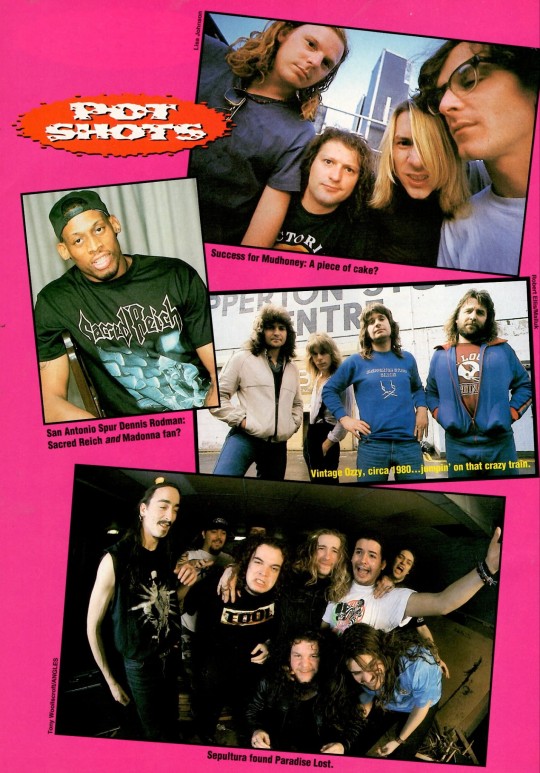
#RIP#rip magazine#mudhoney#mark arm#dan peters#matt lukin#steve turner#dennis rodman#ozzy osbourne#ozzy#randy rhoads#bob daisley#lee kerslake#sepultura#andreas kisser#derrick green#igor cavalera#max cavalera#paradise lost#nick holmes#gregor mackintosh#aaron aedy#steve edmondson#guido montanarini
19 notes
·
View notes
Text
Guitarists tournament
Guitarists tournament
I'm starting a guitarist tournament: I have 36 rock/metal guitarists but four of them as to go.... Here is a list of the guitarists I've chosen: 1)Jimmy Hendrix 2)Jimmy Page 3)David Gilmour 4)Slash 5)Van Halen 6)Brian May 7)Mark Knopfler 8)Tom Morello 9)Angus young 10)Malcolm Young 11)Kirk Hammet 12)Dave Mustaine 13)Robert Frip 14)Jonny Greenwood 15)Ritchie Blackmore 16)Jack White 17)Tim Henson 18)Prince 19)Keith Richard 20)George Harrisson 21)Tony Iommi 22)The Edge 23)Frank Zappa 24)Joe Satriani 25)Randy Rhoads 26)Dimebag Darrell 27Kurt Cobain 28)Éric Clapton 29)Steve vai 30)Billy Gibbons 31)Nuno Bettencourt 32)Steve Ray Vaughan 33)John Pettrucci 34)yngwie malmsteen 35)Eddie Vedder 36)Layne StaleyYou have to eliminate four of them. The guys that come back the most in the comments will not participate to the tournament.
Submitted June 11, 2024 at 09:21AM by the_real_Azathoth https://ift.tt/hp24vum
via /r/Music
0 notes
Text
There could be only one Machiavellian daddy standing in the "Billions" finale revenge showdown between Bobby "Axe" Axelrod (Damian Lewis) and his hedge fund usurper (and dangerous presidential candidate) Michael Prince (Corey Stoll).
After seven seasons of cutthroat high-finance drama and power struggles, "Billions" went endgame with the titan matchup in Showtime's series finale (now streaming on Paramount+; airing on Showtime Sunday 8 EDT/PDT).
But the entire cast of characters featuring ever-evolving allegiances got its due, including longtime Axe persecutor U.S. Attorney Chuck Rhoades (Paul Giamatti), now working with his former nemesis to bring down Prince. The multi-pronged farewell episode even featured former U.S. Attorney Bryan Connerty (Toby Leonard Moore), who hadn't been a "Billions" regular since Chuck engineered his legal problems and prison stint in Season 4 for illegal wiretapping. Connerty made a surprise appearance to receive his reinstated law license, also engineered by Chuck as a peace offering.
"This show was for the show superfans; we found the ultimate landing spot for all these characters," says Brian Koppelman, who created the series with David Levien and Andrew Ross Sorkin.
The final positions from the "Billions" finale:
Axe made Prince a pauper, and resumed his office chair throne
Prince helped orchestrate Axe's downfall in Season 5, which allowed him to get his greedy hands on Axe Capital. As Axe, the heavy-metal-T-shirt-wearing Road Runner of finance, realized he had finally been defeated by Prince, he uttered the line "So this is what it is like to lose."
In real life, Lewis was leaving "Billions" to return to life in England for personal reasons. So Axe was written off (exiled to Switzerland) to avoid arrest by Chuck, thanks to a tipoff from Prince. Prince took over Axe's throne and renamed the kingdom Michael Prince Capital (MPC).
With Lewis and Axe back for the final season, the downfall script was reversed. Axe returned to New York, with Chuck's help and urging, to join the team trying to stop Prince. The Never Princers, who included MPC's general counsel Kate Sacker (Dola Rashad), conspired to annihilate Prince's stock portfolio while the unsuspecting presidential candidate met the U.S. president at Camp David, as his mobile phone was locked up by Marine security.
With the trap sprung, Prince flew into MPC in a rage. Showing the volatile side no one wanted to see responsible for nuclear weapons, Prince threw a printer through the office window of Chuck co-conspirator and ex-wife Wendy Rhoades (Maggie Siff).
Prince bottled his rage seeing Axe and an office full of former employees present to witness his financial demise and presidential ambitions crushed in one bad news day.
"So yeah Mike, this is what it's like to lose," Axe said to Prince, parroting his own line, with a very different subject.
"I bet that felt good," Prince sneered back.
"What does it say about someone who wants to throw somebody's words back in their face? Not great things," says Levien of the line. "That's why we found it so satisfying."
Big winner Axe reclaimed his office chair with no trumpets, but only his faithful lieutenant Mike "Wags" Wagner (David Costabile) standing just behind him.
While Prince hid dark ambitions behind noble ideas, Axe sent his traders out with the capitalist battle cry "Let's make some ... money!" with The Steve Miller Band's ode to bandit living, "Take the Money and Run," playing as the exit soundtrack.
"That song felt just absolutely perfect for the show," Koppelman says.
Prince went down defiantly, vowing revenge
With Humpty Dumpty falling off the financial wall and Prince's world in tatters, even his loyalists disbanded. Right-hand man Scooter Dunbar (Daniel Breaker) saw the light and realized how far the power duo had drifted in its quest for power. Finding he has been spared financial ruin, Scooter announced he's embarking on his dream of conducting an orchestra.
In classic villain mode, Prince admitted defeat but vowed to return and financially crush Axe and anyone else who knocked him. "This country is built on second acts, and when you see mine, you better duck and cover," Prince said.
"People like Prince are not laid low by things that would lay all of us low," Koppelman says. "In three years, the guy will somehow have bought The Sphere off James Dolan."
Chuck and Wendy end up laughing over dinner
Chuck, the main Axe battler in many season finales, relished the slightly less sexy victory over Prince. Chuck also finally came up triumphant in his personal life. Wendy and Chuck's marriage, and vigorous BDSM sex life, had ended acrimoniously after Wendy worked for years as Axe Capital's high-end performance coach.
But "Billions" ended with the two exes smiling as Wendy walked out of Axe Capital moments after turning down Axe's return to work offer. Wendy and Chuck agreed to go on a family dinner with their two children.
The final shot featured Wendy and Chuck laughing at dinner with their kids, as noted chef Connerty performed impressive culinary tricks on the teppanyaki (Moore's real-life cooking skills were often highlighted).
Wendy and Chuck don't resume life as a couple, "but they settled their issues, coming to a great place of mutual understanding, fondness and co-parenting," Levien says.
#billions#7x12#brian koppelman#david levien#bobby axelrod#mike prince#chuck rhoades#bryan connerty#scooter dunbar#wendy rhoades#and none for taylor i guess :(
3 notes
·
View notes